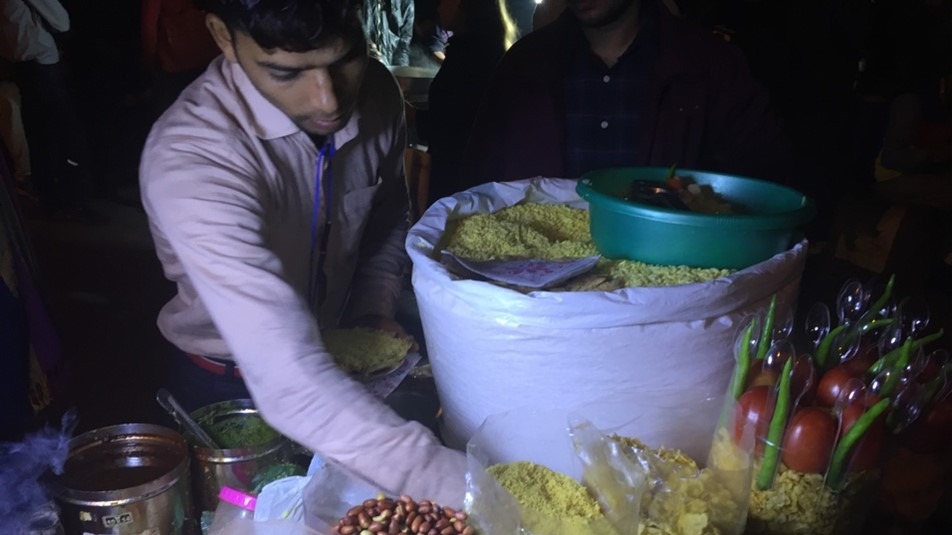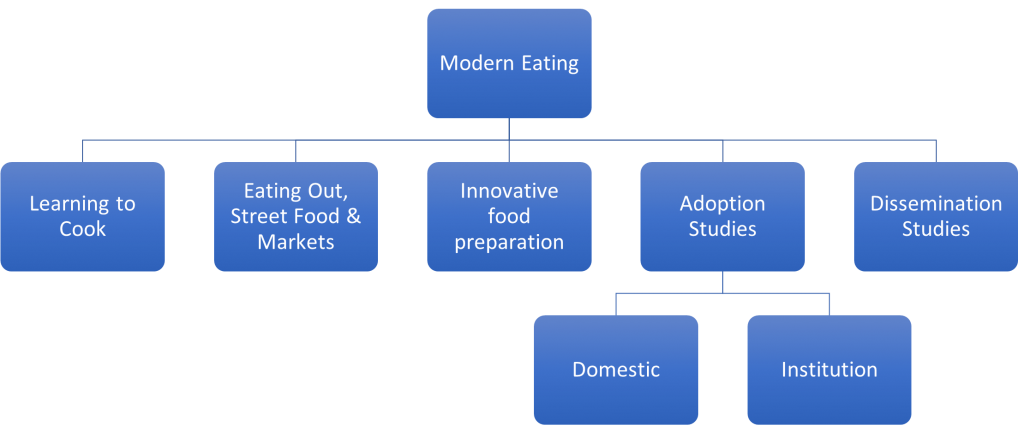
- Date
- 12th February 2021
- Categories
By Melinda Barnard-Tallier (Gamos Ltd).
In 2019, the MECS programme added the Modern Eating (ME) workstream which aims to support the broader goal of transitioning to modern energy cooking services. This will be done by exploring how urban diets and cooking habits are changing to adapt to increasingly busy lifestyles.
The Landscape Study – Modern Foods working paper launched the workstream in August 2020. It considers a wide range of foodstuffs, food preparations, and cooking and eating behaviours that might displace energy from household kitchens. It emerged that whilst there is a body of research on nutrition, sustainability and economic development of food-related interventions in the Global South, very little attention is given to the energy implications of such changes. The Modern Eating workstream will seek to fill the data gap by focusing on what ‘modern foods’ and ‘modern eating’ encompasses, and the opportunities it may offer in reducing energy consumption in the form of modern cooking across households in MECS priority countries.
More specifically, Modern Eating, or ME, through ethnography, is geared to understand the very individuals at the heart of any transition goal – those who cook in different cultural contexts every day. The word play of the acronym ‘ME’ is not lost on us: we recognise it’s the individual at the very core of every decision, every process and transition that matters.
MECS plans to roll out a number of work packages under the ME workstream in 2021. Broadly, the workstream will comprise of five research packages across several of the priority countries in Sub-Saharan Africa (SSA) and South and South-East Asia (SSEA). The core research questions that underpin our work are:
- How do people learn to cook?
- What do we understand modern eating and modern foods to be?
- What are the cultural, socio-economic and socio-political barriers faced by food entrepreneurs and those in the growing processed food sectors of SSA and SSEA?
- How might we reduce energy consumption in kitchens across Africa and Asia with regards to ‘modern cooking’?

Learning to Cook (WP 1) is designed to understand how people learn to cook and the cultural adaptations in cooking practices. in order to effectively transition to clean cooking in line with the aims of the MECS programme.
Eating Out, Street Food & Markets (WP 2) is designed to explore the invisible thread that links the kitchen to the outside world, whether this be in relation to eating out and networks and relationships that extend into informal markets around food and fuel.
Innovative Food Preparation (WP 3) addresses how MECS might best utilise innovations around food processing and production to ensure smooth transition to cleaner and more sustainable cooking systems that also meet the aspirational lifestyles of urban populations in Africa/Asia.
Domestic and Institutional Adoption Studies (WP 4) is intended to support stakeholders (companies, institutions, NGOs etc.) and technologies working to create convenient food products based on indigenous, nutritious foods by understanding the barriers and drivers that influence consumers’ willingness to adopt processed, nutritious, indigenous and convenient foods into their diets.
Dissemination Studies (WP 5) is call for action research into the most effective communication methods for addressing consumer information needs relating to the adoption of nutritious, convenient processed food products, and as such a reduction in energy use in kitchens.
The Modern Eating workstream will not only contribute to the overall programme, but will build a significant knowledge base and body of research alongside other upcoming workstreams, specifically the Urban, SD4MECS, and Culinary workstreams.
Last, but not least, ME is an opportunity for MECS to really engage with women, people living with disabilities, the urban poor, and those who are displaced in urban contexts. Modern Eating is committed and guided by the MECS core values of inclusivity and not leaving anyone behind, of addressing climate change, and improving health and nutrition.
In a series of upcoming blogs, we focus on the concepts that form the basis of our explorative work on ‘modern eating’ and ‘modern foods’: culture, the nutrition transition, convenient processed foods, eating out, waste, and food policy.